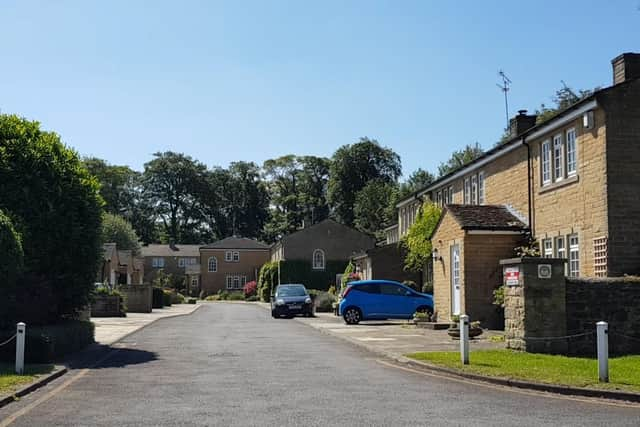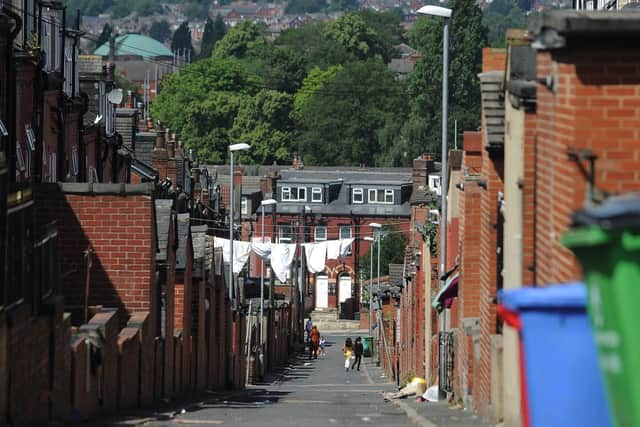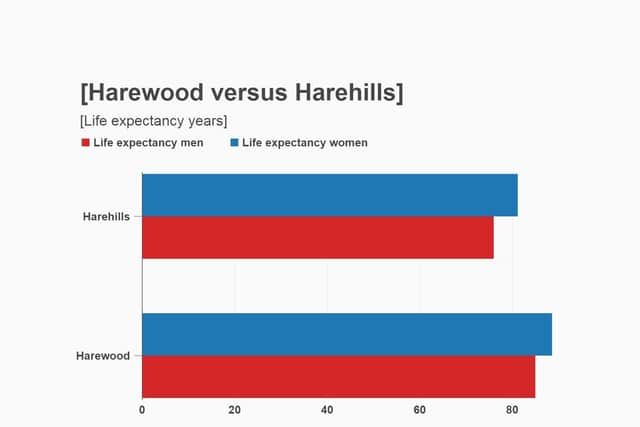Why Leeds' social inequality crisis should be top of the political agenda
and live on Freeview channel 276
In a week long series of putting the cards on the table for Leeds with five issues a new government needs to address, today, Emma Ryan asks what needs to be done to close the gap between rich and poor.
Babies born in Harehills are likely to die ten years before babies born in Harewood.
Advertisement
Hide AdAdvertisement
Hide AdIt was a shocking statistic that brought about the Yorkshire Evening Post’s ‘A City Divided’ series on social inequality and one that has fuelled much debate and research into the issues that make Leeds a tale of two cities.


The factors that contribute to this include health, environment and climate change, quality of housing and social opportunities.
Zest
Zest is an independent, not-for-profit organisation and registered charity based in Gipton which supports people living in disadvantaged areas of Leeds with a range of activities from running social clubs to developing cooking skills.
Earlier this year staff at Zest undertook a ten mile charity walk from Harewood to Holbeck to highlight the ten year gap between the most affluent and most deprived wards in the city.


Advertisement
Hide AdAdvertisement
Hide AdDom Charkin, operations and community projects manager, says: “Throughout the UK, social inequality is getting worse with increasing numbers of people being trapped in a cycle of poverty, neglect and deprivation. In Leeds the gap between the richest and poorest areas is getting wider.
“The director of public health reported that, while Leeds is enjoying relatively good economic growth, those living furthest from the top table see none of the benefits. The latest deprivation figures show an increase in the number of people living in deprived areas from 150,000 in 2010 to 186,000 this year. That equates to 1 in 4 people in Leeds. Living in deprived areas is known to have a negative effect on the wellbeing and life chances of residents.
“The next government needs to recognise and own the issue of social inequality. Accepting that long term issues need long term solutions. Rising inequality is not an issue that temporary sticking plasters can solve. There needs to be long term, realistic and patient investment in our poorest communities.
“This investment needs to be made alongside a commitment to work with those communities; to understand the issues they face; and to co-create local solutions that will in turn help improve life chances. This investment needs to be unrestricted and targeted at all of the wider determinants of health.


Advertisement
Hide AdAdvertisement
Hide Ad“Lastly this investment needs to be made alongside a serious commitment to deal with the impending climate emergency. It is a fact that those living in our poorest communities will be disproportionately affected by the challenges of climate change.
“Only with this commitment will there be genuine and lasting change for our poorest communities that will in turn make Leeds a better place for all of us.”
50 year plan
Mr Charkin’s call for long-term solutions and patient investment comes as the leader of Leeds City Council, Judith Blake works on a document that looks at a 50-year plan to address social inequality.
A long-time advocate of devolution for Leeds and Yorkshire, she argues this will help address social inequality as leaders at local level know what investment is needed in the city and where.
Advertisement
Hide AdAdvertisement
Hide AdShe said: “Lord Kerslake chairs the UK2070 Commission and I am on his board.
“This is about re-building Britain. It is a 50 year programme because some of the inequalities are so entrenched. We need to look forward for the next 50 years and where we want to be in 20/30/50 years. It is an interesting piece of work.
“We have been working with leaders across the north for a few years, really recognising that if we work together we can have a much stronger voice.
“I believe very strongly in devolution in so many areas. If we had the powers and the money and the ability to make decisions at local level we can make the best decisions for the communities that people live and work in.”
Advertisement
Hide AdAdvertisement
Hide AdAs well as pushing the new government on delivering a statutory youth service, climate change, transport and council housing, Leeds will be making a case for early intervention programmes and a standard living wage to address what Blake calls an “absolute scandal”.
She said: “Too many people are working and not able to get the wages that they need to raise families. We need intervention on that.”
Early intervention
Intervention programmes across the board are a strategy which the council has adopted in other areas to a degree of success.
Blake adds: “Early years intervention means when problems are starting to happen we can intervene and work with people.
Advertisement
Hide AdAdvertisement
Hide Ad“Leeds City Council has made a policy decision to keep children’s centres open to work with public health and families and we are the only city in the UK to see a reversal in child obesity.
“We need to be able to do more of that and need the resources to be able to intervene.
“The funding we get in too many areas is to deal with problems which have become very deeply entrenched.”